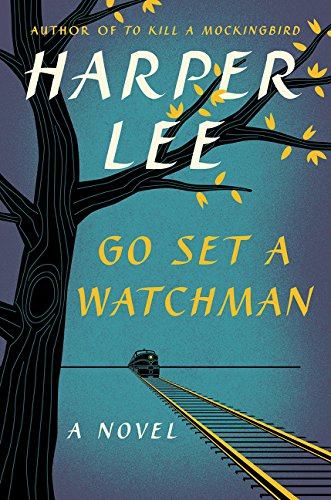All Nonfiction
- Bullying
- Books
- Academic
- Author Interviews
- Celebrity interviews
- College Articles
- College Essays
- Educator of the Year
- Heroes
- Interviews
- Memoir
- Personal Experience
- Sports
- Travel & Culture
All Opinions
- Bullying
- Current Events / Politics
- Discrimination
- Drugs / Alcohol / Smoking
- Entertainment / Celebrities
- Environment
- Love / Relationships
- Movies / Music / TV
- Pop Culture / Trends
- School / College
- Social Issues / Civics
- Spirituality / Religion
- Sports / Hobbies
All Hot Topics
- Bullying
- Community Service
- Environment
- Health
- Letters to the Editor
- Pride & Prejudice
- What Matters
- Back
Summer Guide
- Program Links
- Program Reviews
- Back
College Guide
- College Links
- College Reviews
- College Essays
- College Articles
- Back
Go Set a Watchman by Harper Lee
Have you ever finished a book and wondered, what happens after the pages are done turning? Where are the main characters going next? Go Set a Watchman might be the book for you if you really enjoyed To Kill a Mockingbird, the only two books published by Harper Lee 55 years apart. Go Set a Watchman takes place twenty years later with new and old characters and with new and old challenges facing our protagonists. This story takes you on an epic roller coaster of emotions and frustration but in a different way from the prequel.
The title Go Set a Watchman is a biblical quote (Isaiah 21:6) and means that someone needs to be a moral compass. This meaning draws a lot of similarity between To Kill a Mocking Bird and the current work because Atticus Finch, the father of Jean Louise, is considered moral in each story, because he is the one person everyone asks for advice, he does what is right, and stands up for what he believes in. Even though Atticus is important to the story, Jean Louise is still the main character and the narrator follows her and her emotions; she is still the same head strong, stubborn Scout we all knew and loved fifty years ago, but instead of being six years old, she's twenty six. I am glad that Lee maintained the personality traits that made Jean Louise embody Scout. While the other main characters of To Kill a Mockingbird’s stories are resolved, many were not present in Go Set a Watchman. Still set in the small town in Alabama called Maycomb County “a gerrymander some seventy miles long and spreading thirty miles at its widest point,..”(7), the same small town from To Kill a Mockingbird, influences the communities mindset.
While yes, Jean Louise is still the same Scout just twenty years later, the type of conflict and plot line is completely different and unexpected. Lee’s new book has an internal conflict of whether Jean Louise should conform and marry her long time boyfriend, Henry Clinton. Women all around her tare saying to marry just because it is what women did in that time period, and her boyfriend constantly pressuring her about it. “-but you’ve got to make up your mind to one think, Jean Louise.”(Lee 76) Being the free spirit she is, Jean Louise has to figure this out for herself. Though I knew the book was set closer to present day, I believe it is an appropriate conflict coming from the time period, but I did not expect it coming from the renowned Harper Lee. I anticipated the plot to be more dynamic, and to deal with more obvious social issues.
Le still uses an outside omnipresent voice, which led the readers to understand what Jean Louise was feeling towards all of her internal conflicts and issues. “She felt sick. Her stomach shut, she began to tremble. Hank.”(111) Jean Louise still felt disgusted about racial issues especially when her boyfriend and father were sitting at that table engaged in this conversation. That style works because if the narration was first person from Jean Louise, as readers we would have missed crucial conversations, like the ones between Henry and Atticus about Jean Louise. I am glad that Lee decided to continue in the same style because it made it easier to relate and find connections between the two books.
While I did enjoy the book, I am not sure if it lived up to Harper Lee’s first success. The internal-style plot was not expected, but I did enjoy getting a glimpse into the life of adult “Scout”. Though it was not necessary to know Jean Louise’s back story, I was more appreciative of her strength, outspokenness, and her moral values. If you are looking for an easy going novel that takes place in the fifties with a strong female lead, this may just be the right book for you.
Similar Articles
JOIN THE DISCUSSION
This article has 0 comments.

